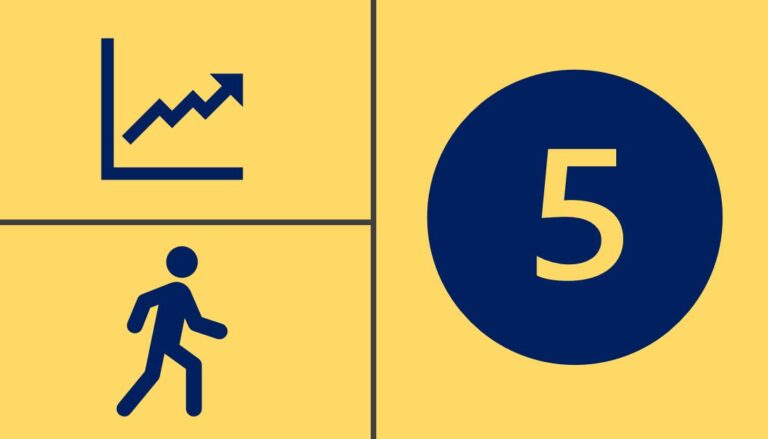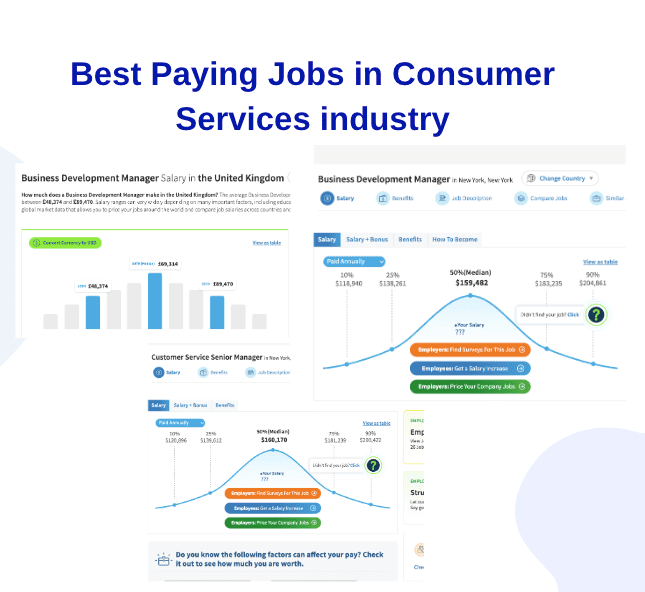Is Commercial Banks A Good Career Path In 2024?
About the author: Ilam’s career in Technology and Financial Services (including some of the biggest banks in the world) spans more than two decades, characterized by leadership roles and vast international experience.

Is Commercial Banks a good career path for you? Let’s Find Out
Commercial banking is an exciting field, offering a variety of jobs from helping customers as a bank teller to making big decisions as a loan officer. It’s a world where your work can make a real difference in people’s lives and businesses.
Whether you’re someone who loves numbers, enjoys helping people, or wants a stable and promising career, commercial banking might have something great in store for you. In this guide, we’ll take a closer look at what it means to work in commercial banks.
We’ll explore different roles you can play, the benefits and challenges of these jobs, and how you can start and grow in this industry.
Understanding Commercial Banking
At its core, commercial banking industry refers to financial institutions that offer a range of banking services that help manage the financial needs of businesses and corporations. This can include anything from providing loans for business growth to managing everyday financial transactions like checking accounts and cash flow. But it’s not just about businesses; these banks also offer services to individuals, making their scope quite broad and impactful.
Key Services of Commercial Banks
- Loans and Credit Facilities: Commercial banks are known for providing loans to businesses for various purposes, including expansion, capital investment, and operational needs.
- Deposit and Transaction Services: They offer checking and savings accounts, enabling both businesses and individuals to deposit money and make transactions smoothly.
- Financial Advice and Risk Management: Many commercial banks offer financial advice to their clients, helping them to manage risks and make informed financial decisions.
| Key Services | Description |
|---|---|
| Loans and Credit Facilities | Commercial banks provide loans to businesses for purposes like expansion, capital investment, and operational needs. |
| Deposit and Transaction Services | They offer checking and savings accounts, enabling both businesses and individuals to deposit money and carry out transactions. |
| Financial Advice and Risk Management | Many commercial banks offer financial advice to their clients, aiding in risk management and making informed financial decisions. |
Here’s some helpful career/leadership related blogs
- Is Major Banks A Good Career Path In 2024?
- Is Business Services A Good Career Path In 2024?
- Is Commercial Banks A Good Career Path In 2024?
- Do you need an Career coach / Interview coach?
- Careers– Agile Coach, RTE, Product Owner, Scrum Master, QA Manager
- Career development plan
- Career growth
- Project Management
- Managing Managers
- IT Career switch
- Software Engineering career path
- Agility, Agile Testing
- Remote leadership / Leadership traits / Agile leadership
The Role of Commercial Banks in the Economy
Commercial banks are vital for economic growth. They provide the necessary funds for businesses to start, expand, and thrive. By lending money to businesses, they help create jobs, foster innovation, and drive economic development. In a broader sense, commercial banks help keep the financial wheels of the country turning.
Understanding these fundamental aspects of commercial banking is crucial. It’s not just about the transactions and the financial products; it’s about playing a significant role in driving the economy forward, supporting businesses, and helping individuals achieve their financial goals. As we move further, we’ll delve into the various roles and opportunities available in this dynamic field, providing a clearer picture of what a career in commercial banking entails.
Key Positions in Commercial Banking and Their Salaries
The commercial banking sector offers a diverse range of career opportunities, each with its own set of responsibilities and financial rewards. Understanding these commercial banking careers, along with their average salary ranges, can help you identify which path aligns best with your skills and career aspirations.
Note: The salaries vary widely depending on the location, company, industry and many more variables. Please do a through research before making a commitment.
Commercial Banker
- Role Overview: Commercial bankers manage client relationships, provide financial advice, and develop tailored banking solutions for businesses.
- Skills Required: Strong interpersonal, financial, and market analysis skills.
- Average Salary: Typically ranges from $60,000 to $120,000 per year, varying based on experience and location.
Loan Officer
- Role Overview: Loan officers assess and approve loan applications for individuals and businesses.
- Skills Required: Analytical abilities, understanding of financial lending, and credit analysis.
- Average Salary: Usually between $50,000 and $90,000 annually, depending on experience and the size of the financial institution.
Credit Analyst
- Role Overview: Credit analysts evaluate the creditworthiness of potential borrowers and analyze financial data.
- Skills Required: Strong analytical skills, attention to detail, and financial data interpretation.
- Average Salary: Ranges from $45,000 to $85,000 per year, influenced by experience and the complexity of the role.
Branch Manager
- Role Overview: Branch managers oversee bank branch operations, ensuring service efficiency and regulatory compliance.
- Skills Required: Leadership, organizational skills, and operational management.
- Average Salary: Typically from $60,000 to over $100,000 annually, based on the branch size and location.
Portfolio Manager
- Role Overview: Portfolio managers handle investment portfolios, making strategic decisions based on client goals.
- Skills Required: Investment knowledge, strategic planning, and market trend analysis.
- Average Salary: Generally between $70,000 and $130,000 per year, often higher with more experience and success in managing large portfolios.
Entry-Level Positions: Bank Teller and Customer Service
- Role Overview: These positions involve customer interaction and daily transaction handling.
- Skills Required: Customer service, basic financial knowledge, and attention to detail.
- Average Salary: Around $30,000 to $40,000 per year, serving as a starting point in the banking career ladder.
These roles demonstrate the variety and financial potential within the commercial banking sector. As you consider a banking career, it’s important to weigh not only the job responsibilities but also the salary prospects.
The Pros and Cons of a Career in Commercial Banking
A career in commercial banking can be both rewarding and challenging. Understanding the advantages and drawbacks is crucial for anyone considering this path. Here, we’ll explore the various pros and cons to give you a balanced view of what it’s like to work in this sector.
Pros of a Career in Commercial Banking
- Attractive Salary and Benefits: As highlighted earlier, many positions in commercial banking offer competitive salaries with potential for bonuses and additional benefits.
- Job Stability: The banking industry is a staple of the global economy, often providing more job security than other sectors.
- Career Advancement Opportunities: There’s significant potential for professional growth, with clear pathways to advance from entry-level roles to more senior positions.
- Diverse Career Paths: The sector offers a variety of roles, catering to different interests and skill sets – from customer-facing positions to analytical roles.
- Impact on Businesses and the Economy: Working in commercial banking means playing a key role in the financial success of businesses and, by extension, the economy.
- Professional Development: Banks often invest in training and development programs for their employees, enhancing skills and knowledge.
Cons of a Career in Commercial Banking
- High Pressure and Stress: The nature of banking can be demanding, with high stakes involved, especially in roles related to lending and investment.
- Long Working Hours: Certain positions, especially in higher management, may require long hours and availability beyond the typical workday.
- Rapid Industry Changes: With advancements in financial technology, employees need to continually adapt and learn new skills.
- Regulatory Environment: The banking sector is heavily regulated, which can add layers of complexity and bureaucracy to the job.
- Sales Targets: Some roles involve aggressive sales targets, which can be challenging and stressful for individuals not inclined towards sales.
Understanding these pros and cons is essential for making an informed decision about a career in commercial banking. While the sector offers lucrative and diverse opportunities, it also demands dedication, adaptability, and resilience.
Educational and Skill Requirements for a Career in Commercial Banking
To build a successful career in commercial banking, certain educational qualifications and skill sets are essential. This sector not only values formal education but also places a high emphasis on practical skills and continuous learning. Let’s break down what you need in terms of education and skills to thrive in this field.
Educational Background
- Bachelor’s Degree: Most positions in commercial banking require at least a bachelor’s degree. Degrees in finance, business administration, economics, or related fields are particularly valuable.
- Advanced Degrees and Certifications: For higher-level positions, an MBA or a specialized master’s degree in finance can be advantageous. Additionally, certifications like the Chartered Financial Analyst (CFA) or Certified Commercial Investment Member (CCIM) can enhance your credentials.
- Continuous Learning: The banking sector is constantly evolving, so staying updated with the latest financial trends, technologies, and regulatory changes is crucial.
Key Skills Required
- Analytical Skills: Whether it’s assessing financial reports, conducting risk assessments, or analyzing market trends, strong analytical capabilities are crucial.
- Communication Skills: Effective communication is key in dealing with clients, understanding their needs, and explaining complex financial concepts clearly.
- Attention to Detail: Precision is vital, especially when it comes to handling financial transactions, preparing credit reports, or conducting financial analysis.
- Problem-Solving Abilities: The ability to tackle challenges and find effective solutions is highly valued in the banking sector.
- Technological Proficiency: Familiarity with financial software, data analysis tools, and emerging financial technologies is increasingly important.
- Interpersonal Skills: Building and maintaining strong client relationships is a critical aspect of many roles in commercial banking.
Combining the right educational background with these key skills can open doors to various opportunities in commercial banking. Whether you’re just starting out or looking to advance your career, focusing on these areas will be crucial.
Career Growth and Opportunities in Commercial Banking
Advancing your career in commercial banking involves understanding the various paths available and the steps you can take to climb the professional ladder. This sector not only offers a range of positions but also provides numerous opportunities for growth and development. Here’s an overview of how you can progress and succeed in the world of commercial banking.
Starting Your Career: Entry-Level Opportunities
- Entry Points: Starting positions like bank teller or customer service representative provide a foundational understanding of banking operations.
- Learning and Growth: These roles offer valuable experience and insights into the banking processes, customer interactions, and basic financial services.
Mid-Level Career Advancement
- Specialized Roles: After gaining experience, many professionals move into more specialized roles such as credit analysts, loan officers, or relationship managers.
- Skill Enhancement: This stage often involves further skill development, such as advanced financial analysis, risk assessment, and client management.
Moving to Higher Management
- Senior Roles: With enough experience and a strong track record, opportunities to move into higher management positions like branch manager or portfolio manager become available.
- Leadership and Strategy: These roles require strong leadership skills, strategic thinking, and a deep understanding of the banking industry and market trends.
Continuous Professional Development
- Training and Certifications: Pursuing additional certifications and ongoing training is crucial for staying updated and enhancing your skill set.
- Networking: Building a strong professional network can open up new opportunities and provide valuable industry insights.
Specialization and Niche Expertise
- Focus Areas: Professionals can also choose to specialize in certain areas like corporate finance, investment banking, or financial technology.
- Expert Status: Developing expertise in a specific niche can lead to becoming a sought-after expert in that area, leading to unique opportunities and career growth.
Opportunities Beyond Traditional Roles
- Consultancy and Advisory: Experienced banking professionals can venture into consultancy, offering their expertise to various clients and institutions.
- Teaching and Mentoring: Some choose to transition into academic or mentoring roles, sharing their knowledge with the next generation of bankers.
A career in commercial banking is not linear but offers multiple pathways depending on your interests, skills, and career goals. By understanding these opportunities and taking proactive steps towards your professional development, you can build a successful and fulfilling career in this dynamic industry.
Commercial Banking Vs. Other Banking Sectors
A banking job is a banking job, right? No.
Each sector offers unique roles, challenges, and rewards, making them suitable for different career aspirations and skill sets. Let’s examine how commercial banking stands alongside other prominent banking sectors such as retail banking, investment banking, and others.
Commercial Banking vs. Retail Banking
- Client Focus: Commercial banking primarily serves businesses and corporations, while retail banking focuses on individual consumers and small businesses.
- Services Offered: Commercial banks deal with larger loans, credit facilities for businesses, and complex financial products, whereas retail banks offer personal loans, mortgages, and basic savings and checking accounts.
- Career Paths: Careers in commercial banking often involve dealing with more complex financial products and require a deeper understanding of business and corporate finance, while retail banking is more focused on individual customer service and sales.
Commercial Banking vs. Investment Banking
- Nature of Work: Investment banking is centered around providing advisory services, underwriting securities, and facilitating mergers and acquisitions, contrasting with the more traditional lending and deposit services of commercial banking.
- Risk and Reward: Investment banking tends to involve higher risks but potentially offers higher rewards and bonuses, while commercial banking offers more stability.
- Skill Set: Investment banking requires strong analytical skills, understanding of capital markets, and often longer working hours, whereas commercial banking demands a balance of analytical skills and client relationship management.
Commercial Banking vs. Corporate Banking
- Clientele: Corporate banking is a subset of commercial banking but specifically caters to large corporations and major businesses with complex banking needs.
- Product Complexity: Corporate banking tends to involve more complex products and services like syndicated loans or treasury solutions compared to the broader range of services in general commercial banking.
Emerging Areas: Financial Technology and Digital Banking
- Innovation in Banking: With the rise of financial technology, digital banking sectors are emerging as new career destinations, offering roles that blend traditional banking with technological innovation.
- Skill Requirements: These sectors require a combination of banking knowledge and digital technology skills, appealing to those interested in tech-driven financial services.
Understanding these distinctions is crucial when deciding on a career path in banking. Each sector has its unique environment and requirements, and choosing the right path depends on your personal interests, skills, and career goals.
Additional Sources
- Bureau of Labor Statistics (BLS): Provides comprehensive data on employment and wages across various sectors, including consumer services. Visit BLS
- LinkedIn Salary Insights: Offers detailed salary information based on job title and location, sourced from LinkedIn’s user data. Check LinkedIn
- Glassdoor: A platform where employees and former employees anonymously review companies and their management, and provide insights into salaries and job responsibilities. Explore Glassdoor
- Indeed: Features job listings as well as salary data and company reviews provided by employees. Visit Indeed





